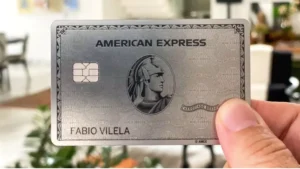Weekend Getaways: How Americans Are Adjusting Their Leisure Spending reveals a shift towards budget-friendly travel, with 37% of travelers adjusting plans due to rising expenses and 36% opting for less expensive lodging or shorter stays. Road trips are gaining popularity, with 71% of travelers planning to take one, and 22% specifically driving to avoid high flight costs. This trend indicates a desire for economical travel without sacrificing enjoyment, as travelers explore local sights and seek deals.
In this article, you will learn:
- 37% of travelers are adjusting their weekend getaway plans due to increased expenses.
- 36% are saving money by changing where they stay, booking less expensive lodging, or shortening their stay.
- 71% of travelers plan to take a road trip.
- 22% of travelers are choosing to drive specifically to avoid high flight costs.
- Microcations, short getaways more than 100 miles from home but lasting no more than four nights, are gaining popularity.
- “Pop-Up Escapes,” “Bleisure,” and “Flexcation” are emerging travel trends, emphasizing adaptability and experience-driven travel.
How are Americans adjusting their leisure spending on weekend getaways?
Americans are rethinking their weekend getaways, adopting a budget-friendly mindset. Instead of splurging, travelers are trimming expenses and reshaping plans to match tighter financial limits, often booking affordable accommodations and choosing less costly travel methods. Despite economic challenges, the desire for a summer break remains strong, with people being more mindful about spending.
Several common strategies have emerged for budget-conscious weekend getaways, reflecting a broader shift toward maximizing every dollar:
- driving instead of flying to cut down significantly on transportation costs, especially for families,
- selecting closer destinations to reduce overall expenses, including gas and potential tolls,
- planning shorter trips, where even skipping overnight stays can lead to substantial savings,
- booking budget-conscious lodging, opting for hotels, motels, or rentals that offer competitive rates,
- scaling back on paid activities, instead exploring free local attractions and events.
Instead of skipping vacations, many are embracing “microcations”—short getaways more than 100 miles from home but lasting no more than four nights. These quick escapes offer a refreshing break without straining the wallet.
Rising transportation costs are a significant factor driving this shift. Surveys show that 37% of travelers are adjusting plans due to increased expenses. In response, many are choosing economical travel methods or smaller-scale trips. Another 36% are saving money by changing where they stay, booking less expensive lodging, or shortening their stay.
This move toward economical travel doesn’t mean sacrificing enjoyment. Instead, travelers are exploring local sights, attending free community events, and searching for deals on food and accommodations to make each trip memorable and affordable.
Why are shorter trips and driving more popular for weekend getaways?
A growing number of travelers are opting to hit the road instead of booking flights, largely to save money. With a heightened focus on budgeting, people are finding that driving offers a more affordable way to enjoy a quick escape without overspending.
Several factors are fueling this trend:
- Cost Efficiency: Driving is often less expensive than flying, especially as airfare continues to climb. Travelers save on airfare, baggage fees, and airport parking,
- Financial Awareness: Shorter trips help travelers stay within their means, which is especially important during times of economic uncertainty. By reducing travel time, they also reduce accommodation and dining costs,
- Smart Spending: People still want meaningful experiences, but they’re being more selective about where their money goes. They might choose less expensive destinations or opt for free activities like hiking or visiting local parks,
- Travel Flexibility: Local getaways make it easier to travel more frequently without putting too much strain on the wallet. This allows for spontaneous trips without the need for extensive planning or large upfront costs.
Road trips are quickly becoming the go-to option for many. Around 71% of travelers plan to take one, and 22% say they’re choosing to drive specifically to avoid high flight costs. With transportation expenses on the rise, staying closer to home is not only more economical but also more convenient. Shorter journeys align better with tighter budgets, making them an appealing and practical choice for today’s traveler.
How do tighter budgets influence weekend getaway choices?
With tighter budgets influencing decisions, people are rethinking how they plan their weekend escapes. Many travelers are watching their spending closely, often tweaking their plans to stay within a set budget by opting for affordable, no-frills trips that still offer a change of scenery.
Rather than splurging on one extended vacation, some are choosing to take several shorter getaways throughout the year to enjoy regular breaks without straining their finances. This approach allows for more frequent travel experiences while maintaining financial prudence.
Ultimately, both travel costs and overall household expenses are key factors in shaping where people go and how they choose to get there. For example, travelers might select destinations closer to home, utilize public transportation, or seek out budget-friendly accommodations to minimize expenses.
What factors influence Americans’ weekend getaway decisions?
Economic shifts, changing lifestyles, and new travel preferences are all influencing how Americans plan their weekend escapes. With a growing appreciation for downtime, more people are prioritizing short getaways, giving the travel industry a noticeable boost. At the same time, travelers are adapting their choices in response to financial conditions and emerging travel trends.
How do rising costs and tariff-driven inflation affect weekend travel?
Rising costs and tariff-driven inflation significantly impact weekend travel decisions. As prices for transportation, accommodation, and activities increase, travelers often adjust their plans to stay within budget. This can manifest in several ways: choosing destinations closer to home to minimize travel expenses, opting for shorter trips, selecting budget-friendly accommodations like vacation rentals or less expensive hotels, and cutting back on discretionary spending for dining and entertainment.
For example, instead of a long-distance flight, a family might choose a nearby state park for camping, or a couple might opt for a weekend staycation exploring local attractions rather than an expensive resort. These adjustments reflect a conscious effort to balance leisure pursuits with financial realities.
How do economic developments and tariff-related inflation affect weekend getaway plans?
Rising tariffs and shifting economic conditions are making it tougher for people to plan weekend escapes. As financial pressures grow, travel becomes less accessible, particularly for international trips.
Many are tightening their budgets, cutting back on vacations and overseas adventures. In response, travelers are scaling down their plans, opting for fewer trips abroad and being more selective with how they spend once they get there. For example, instead of a week-long trip to Europe, families might choose a long weekend at a closer, more affordable destination.
This shift also encourages travelers to explore local attractions and support regional economies, providing a boost to domestic tourism.
Which types of weekend getaways are Americans favoring, and why?
More and more Americans are opting for shorter, more frequent vacations as a way to explore without breaking the bank. Quick escapes lasting three nights or fewer have become especially popular, offering a refreshing break without the hefty price tag of extended travel. The goal is to create meaningful experiences while keeping costs in check.
To stretch their travel budgets, many are turning to budget-friendly accommodations like vacation rentals and smaller hotels, and seeking cost-effective ways to get around, such as public transportation or carpooling. These shorter getaways allow for exploration of local attractions, participation in unique events, and quality time with loved ones, all while minimizing financial strain.
| Aspect | Strategy | Benefit |
|---|---|---|
| Accommodation | Vacation rentals, smaller hotels | Reduced lodging costs |
| Transportation | Public transport, carpooling | Lower travel expenses |
| Activities | Local attractions, free events | Cost-effective entertainment |
What are “Pop-Up Escapes,” “Bleisure,” and “Flexcation,” and how are they trending?
“Pop-Up Escapes,” “Bleisure,” and “Flexcation” are emerging travel trends that reflect how people are rethinking leisure and exploration. These trends emphasize adaptability and experience-driven travel, catering to the desire for both relaxation and productivity.
- Pop-Up Escapes: These are quick getaways, typically lasting one to three nights and often located within a short drive. Their appeal lies in their simplicity, requiring minimal planning and packing for a fast break from routine without the hassle of long travel. For example, a family might take a weekend trip to a nearby state park for hiking and camping,
- Bleisure: This trend combines business with pleasure, where travelers extend their work trips by a few days for personal enjoyment. It’s a strategic way to unwind and discover new places while fulfilling professional obligations. An example would be attending a conference in Las Vegas and then staying an extra two days to explore the city’s attractions,
- Flexcation: This approach blends remote work with vacation time, enabling individuals to stay longer at their destination without using up all their vacation days. It offers a flexible way to balance productivity with relaxation. For instance, someone might spend two weeks working remotely from a beach house, enjoying the evenings and weekends as vacation time.
These trends collectively illustrate a move towards travel that integrates seamlessly with modern lifestyles, prioritizing convenience, flexibility, and enriching experiences.
How can the travel industry adapt to changing weekend getaway spending patterns?
The travel industry must remain adaptable to keep pace with evolving weekend getaway preferences. Staying ahead means reacting quickly and using smart, forward-thinking strategies. Offering attractive deals can help draw in more customers, while delivering memorable experiences ensures travel remains a top priority.
To keep up with changing spending patterns, travel companies can take several approaches:
- craft personalized travel packages, tailoring packages to different interests to make trips feel more meaningful and appealing to specific customer segments,
- provide budget-friendly options, offering a range of choices that cater to various budgets, making travel accessible to a broader audience, including discounted rates, bundled deals, or off-season promotions,
- enhance the destination experience, adding value by improving the overall experience at the destination, which could involve partnerships with local businesses to offer exclusive activities or discounts,
- offer flexible booking and cancellation policies, giving travelers peace of mind with options that allow them to modify or cancel their bookings without incurring hefty fees,
- leverage data analytics, using data to better understand customer behavior and adjust offerings accordingly, including tracking booking patterns, popular destinations, and customer preferences.
Beyond these strategies, companies can further boost weekend travel by launching targeted promotions, developing loyalty programs that reward repeat customers, and forming strategic partnerships that expand their reach and appeal.
What role do budget-friendly adventures and in-destination experiences play in attracting weekend travelers?
Affordable getaways and authentic local experiences are key to attracting weekend travelers. These short-trip seekers often look for great value and unforgettable moments.
Enticing deals can initially grab their attention, but unique activities truly keep them engaged, even on a budget. For example, a free walking tour showcasing local history or a discounted cooking class featuring regional cuisine can transform a simple weekend trip into a memorable adventure.
Travelers increasingly prioritize experiences over material possessions, making these budget-friendly yet enriching activities highly appealing.








